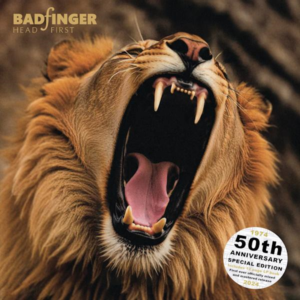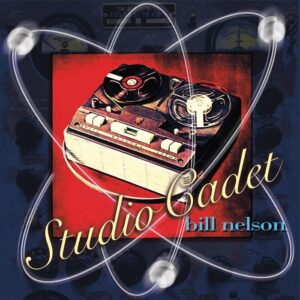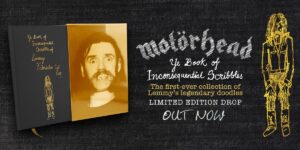Devo’s Jerry Casale Remembers His Brother Bob: ‘Devo Was a Unit’

The stunning news that Devo guitarist Bob Casale passed away from heart failure earlier this week was as shocking to the band as it was to their fans. Nobody was as devastated as Jerry Casale, his brother and bandmate of 40 years. We spoke to Jerry on the phone about Bob’s life and legacy. Bob was one of the five gears of Devo that made the engine run. He helped create a body of work that put the new in new wave and changed the way a lot of people thought about music and a lot of ideas they had about culture.
He was integral in the creation of our music. On our cover of “Satisfaction,” he created that guitar line and then we all started contributing parts around it until it became “Satisfaction.” But he started that. Mark Mothersbaugh had a five-chord progression on a clavinet that became “Gut Feeling,” but Bob Casale came up with the arpeggiated, revolving, tingling guitar line that sounds like a twisted, devolved Byrds riff. He was constantly doing things like that. He was good at playing guitar lines like on our twisted rendition of “Secret Agent Man.” He could play exactly like a machine.
In the later days of Devo, Bob was also instrumental because we used a lot of sequencers. Bob was very facile and adept at programming those early, tedious sequencers that we were forced to use. He made them sound good and he created plausible sounding note patterns that weren’t too busy. He was very good at that. That’s where he shined. He became more of a programmer and an engineer than a guitar player.
I had four siblings, but Bob was my closest brother in age. We were born four years apart and we bonded very, very early on. We also loved the same sort of music when we were young. We got really great radio stations out of Detroit, so we were listening to a lot of Motown and R&B and Chicago blues. That was our true love other than big pop music hits like the Rolling Stones and the Beatles and Kinks and James Brown.
Bob was a self-taught guitar player. I started playing bass when I was 17. He began playing guitar when he was 15 and I had gone onto college. His first band was a surf band called the Wipeouters. We didn’t see each other much in that period.
We hooked up as musicians when I was in graduate school. We started talking about these Devo concepts and I started infecting him with the Devo bug. Mark Mothersbaugh and I got serious about our concepts so we enlisted our brothers. I talked my brother Bob into it and Mark talked his brother Bob into it. Suddenly, we were a real band. We never played together until we started jamming as Devo in 1974.
When Bob graduated from high school he went into radiology and became a radiologist technician. For the first three or so years of the band, he was leading a double life between Devo and his work as a radiologist. He even came into one of the gigs at The Crypt in his scrubs. A lot of people told Bob to stop playing in Devo in those early days. Luckily, he had trust. That’s one of at the advantages of brothers. He didn’t accept disrespectful assessments of our experiments. We were feared and objects of derision all at the same time. They felt sorry for us in a way. We couldn’t even get a date
Devo was certainly, in the beginning, a true unit. We were the Five Musketeers. It took everyone’s energy and everyone’s contributions, whether or not they wre the primary songwriters. Of course, Mark and I wrote all the songs, but without Bob Mothersbaugh and Bob Casale those songs would have never been fleshed out into full Devo expressions. What people liked about us was that we were playing as if we were a machine. But we were playing for real with no click tracks, no sequencers or anything in the beginning. People didn’t believe what they were hearing. It was so tight, like white robot versions of James Brown’s Famous Flames. It really took Bob’s style of guitar playing to complete that, both Bob’s. They could play very staccato very exactly. They both had the willingness to play lines that no self-respecting guitar player would play because that’s not how you use a guitar. They were with us, they trusted us.
Bob kept his day job until we got an invitation from A&M Records to travel out to California and showcase for them in the summer of 1977. He let his whole career go and we drove out in Bob’s car plus an old equipment van. Our family was very concerned and disappointed when Bob decided to go with us. He was the guy with his head screwed on straight, the even-keeled and well-tempered one. I was the whack artist going off the rails. They were really afraid that he had been led astray.
There’s a long history of brothers fighting in bands, but we didn’t have any of those problems. I think that’s because Bob Mothersbaugh and Bob Casale were just really, really solid team players. They weren’t vying for any kind of takeover. They lent themselves to the enterprise to make it all work as a team.
Mark and I received the most attention, but Bob never minded being in the background. He knew we respected him. I set up the band as a corporation with publishing being held by the band. Other than songwriter royalties, the band shared evenly in every other aspect of income. That showed respect for anyone who was willing, in the lean years, to sit there for eight hours in a basement working on one lick over and over and getting nothing for it. They all deserved to share in the spoils. We had a fair system.
Bob did enjoy it when the band broke big in the early 1980s. It’s always very nice to suddenly be recognized and rewarded for something you actually want to do and nobody knew they wanted until you made them want it. But of all of us in the band, Bob was the tamest. He got married pretty early on. He didn’t have many wild years. By 1984 he had children, so he was more of a guy that was family oriented. He was content to be a grill master and stay home and cook for his family.
When Devo took a break in the early 1990s, Bob started to assist Mark at Mutato Muzika. All Mark wanted to do at that point was score TV shows. He was scoring Rugrats. He needed help and Bob had become a very good audio engineer and a great technician, so Bob started working for Mark. It never even occurred to him to go back to radiology. Too much time had passed and he just loved the music world.
In the mid-1990s, we began to play shows and festivals again. Bob just loved playing live. He was like me. We wanted to write songs, have a voice in the marketplace and play live as the payoff. We never lost our energy onstage and when we got older we made fewer mistakes and actually played better.
I last saw Bob three days before he died. I talked to him the night before he died. Nothing was wrong. He died of heart failure, but that was the end result, not the cause. He had some kind of a breach of his stomach lining where he started losing blood into his stomach. They had to get it out of him and give him new blood because once blood is in your stomach, it’s useless. They couldn’t stop the loss of blood in time, so his blood pressure went so low that his heart muscle couldn’t handle severe low blood pressure.
I think he’d want Devo to carry on. I don’t know what’s going to happen, though. If it was was up to me, it would. I’d make sure a portion of our earnings went to his children, because they need help. The only time Devo ever played without him was back in 1973 when we did a one-off before he joined the band. We were only four guys. Any future shows without him will be the first time playing without him in forty years.
I have no idea what the future holds, but what we had planned for the 40th anniversary was to go out live and play all the early, experimental songs we wrote that appeared on Hardcore Devo, the ones we had well before we had a record deal. We haven’t played those songs in 40 years. Songs like “Mechanical Man,” “Space Girl Blues,” “She Didn’t Know I Was a Midget.” We wanted to show people what we were doing at the time by using the same instruments, really hardcore and raw. We were the White Stripes and the Black Keys in an era before those guys. We wanted to show people what it was like to actually hear whacked-out parts being played together. All those plans are on hold, though. We could find a way to do it because the songs were so minimal.
A lot of the headlines I’ve seen have just said “‘Whip It’ Guitarist Dead.” That’s how this dumbed-down culture works. De-evolution is real and just getting worse.
Source: Rolling Stone


